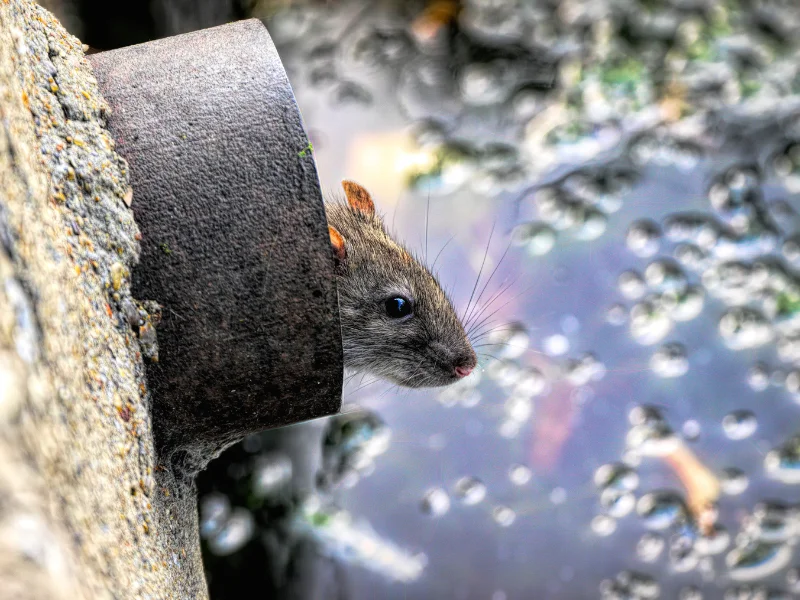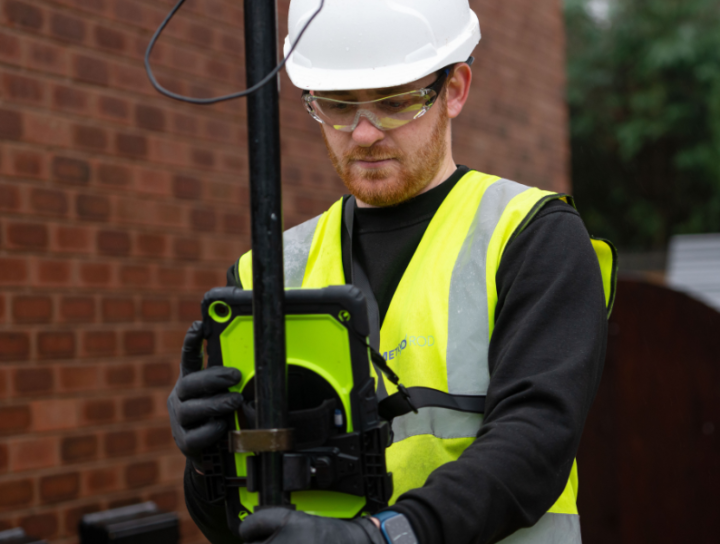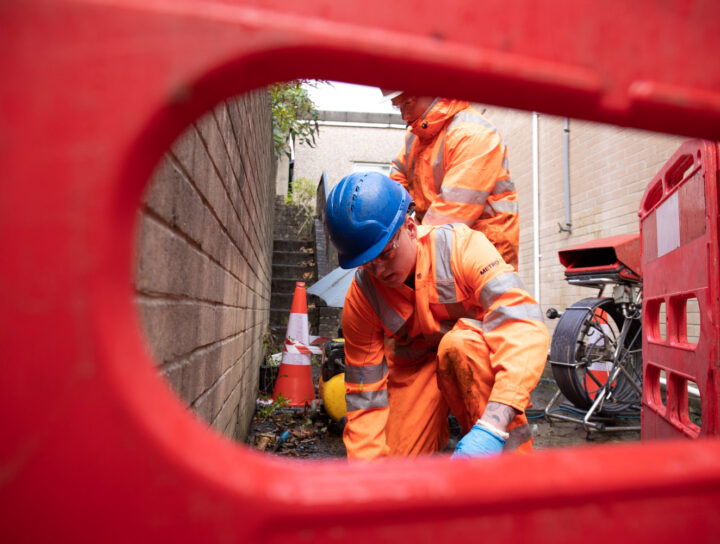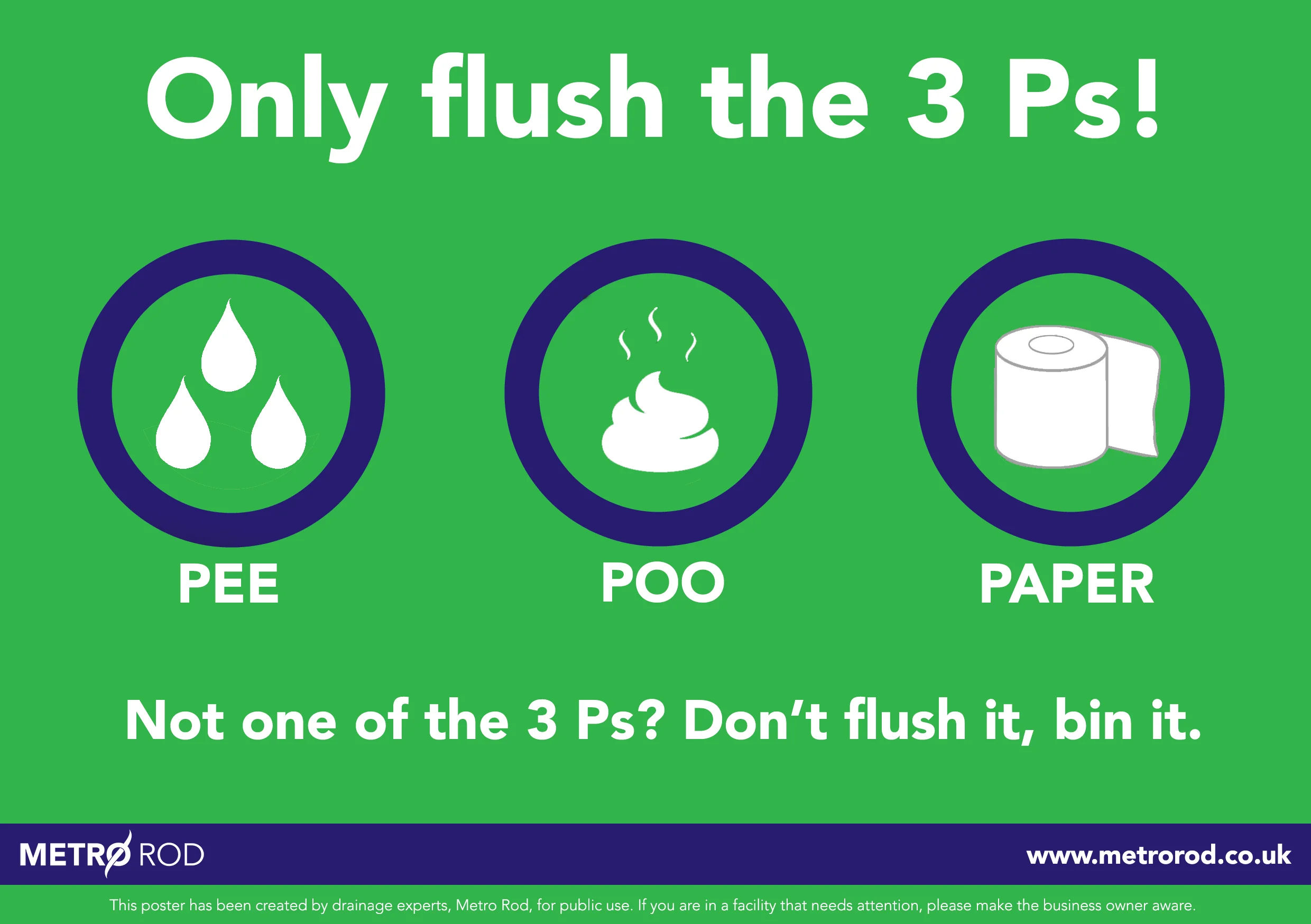Rats in Your Drains? Here’s What You Need to Know
According to the British Pest Control Association, there are anywhere between 10.5 million and 120 million rats in the UK. They play a key role in our ecosystem, but anyone who’s had rats in their drains before knows an infestation can bring serious problems.
Rats can collapse their bodies to easily access to drains via small gaps and tight spaces. Once rats enter the drainage system, they can cause significant damage to pipes and lead to problems, including blockages and leaks. If you suspect rats are in your drains – either at home or on a commercial premises – they need to be dealt with quickly and efficiently.
Signs of Rats in Drains and Toilets
Drains offer the perfect environment for rats to live in, as they’re a warm, safe and secure place filled with an unlimited supply of food and water from the waste we flush away. Rats enter via breaks or cracks in drainpipes, and from there can make their way around the sewer system and then directly into properties.
The common signs you have rats in your drains are:
- Rat droppings around your premises – These are brown, spindle-shaped droppings that look like grains of rice.
- Gnaw marks – Rats can chew through pipes and plumbing, so you might see marks here as well as on wires, cables and packaging.
- Noises – You might hear scuttling or scratching sounds around your property including in the walls, floors, attic or pipes.
- Slowly draining water – You might notice water draining more slowly from sinks, toilets or outside drains, which could indicate a blockage caused by rats.
If you’ve spotted any signs of rats in your drain, contact your local drainage office for a free, no-obligation quote to resolve the problem.
Who is Responsible for Rats in Drains?
Depending on where the rat infestation has originated, different people are responsible for remedying the situation.
- If the problem originated in a public drainage system, the local water authority must resolve the issue.
- If the rats have entered drains connected to your property and you own it, it is up to you to have them removed by a pest control expert. You should do this as soon as possible to prevent further damage to your property and the local area.
- If the rats have entered drains connected to your property, but you do not own the property, it is the landlord’s responsibility to manage the situation. You should check your tenancy agreement to find out more.
How to Eradicate Rats at Home
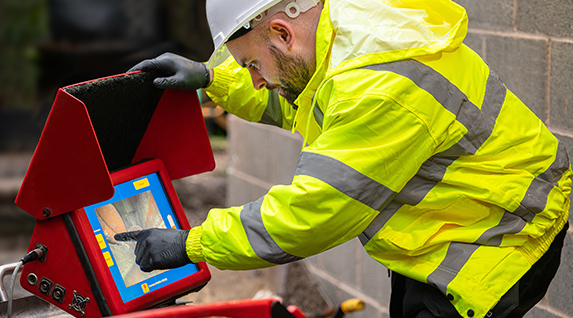
If you suspect rats are lurking in your drains and are wondering how to stop rats from climbing drainpipes, consulting a drainage expert is an essential first step. These professionals can pinpoint how the rats are accessing your system, assess the severity of the infestation, and identify any damage they may have caused.
Through a CCTV drainage survey, they use specialised cameras to inspect the interior of your pipes, revealing cracks or breaks that might serve as entry points. Once identified, these areas can be promptly repaired to secure your drainage system.
Beyond addressing existing damage, drainage engineers can implement preventative measures like rat blockers or gates, which stop rats from re-entering the system. Attempting to handle the problem yourself with methods like poison traps poses risks to both your safety and the environment. Instead, experts recommend enlisting drainage specialists for structural repairs and pest control professionals to safely and effectively eliminate the infestation. With their combined expertise, you can restore your property while preventing future issues.
How to Prevent Rats in Drainpipes
After addressing a rat infestation, it’s crucial to prevent it from happening again. Rats living in drainage systems are exposed to harmful bacteria from flushed waste, making them carriers of diseases that can threaten human and environmental health. Ongoing infestations pose a significant health risk and can lead to structural damage and recurring problems.
The key to preventing further rat infestations in your drain is to ensure your drainage system is in good working order and doesn’t attract rats in the first place. There are two main ways to achieve that –
- Pouring fats, oils, and grease (FOG) down your sink attracts rats and causes blockages that damage pipes, making it easier for pests to enter. Scrape food waste into a bin before washing dishes to keep drains clear and uninviting to rodents.
- Installing a drainpipe cover, such as a rat blocker or rat gate, prevents rats from entering your drainage system. Pair this with regular inspections by a drainage expert to identify and repair cracks or leaks. Together, these measures ensure your drains remain secure and unattractive to pests, reducing the risk of future infestations.
What is a Rat Blocker for Drains?
Once a CCTV drainage survey has revealed how rats access your system, your drainage expert can propose solutions like pipelining or patching, followed by installing a rat blocker.
A rat blocker is a simple but effective device with a single-flap mechanism to fit standard drain sizes. It allows waste and water to flow normally while preventing rats from re-entering your drains after they’ve exited. This humane, poison-free solution is environmentally friendly and highly reliable when inspected annually to ensure optimal performance.
Also known as rat gates, these devices offer long-term protection against infestations. At Metro Rod, we partner with RatGate, a trusted supplier of rodent prevention devices, to safeguard your property. If you’re curious about how a RatGate is installed, they provide a helpful tutorial to guide you through the process.
How Metro Rod Can Help Stop Rats in Drains
At Metro Rod, we have the expertise to tackle the complex issue of having rats in your drains and the potential challenges they can cause in homes and commercial premises. If you suspect you have rats in your drain, contact your local office or call us on 0800 66 8800 to help solve the problem. We’re available 24/7/365 days a year for all your drainage needs.
Rat Prevention FAQs
What attracts rats to your house?
Nearly half a million tonnes of fats, oils and grease (FOG) enter the UK sewage system every year. The grease sticks to the walls of pipes and builds up, mixing with other items that enter the system, like wet wipes, to create fatbergs. It’s these fatbergs that attract rats and from there, they enter the pipes that serve our properties.
How much should it cost to get rid of rats?
At Metro Rod, we provide tailored solutions for rat removal. Costs depend on factors like the severity of the infestation, property size and required methods. Larger infestations may need more inspections, while options like rat blockers in drains offer long-term protection. Our expertise, 24/7 availability and transparent pricing ensure effective results and peace of mind. If you’re dealing with a rat issue, contact Metro Rod for expert advice and a solution to suit your needs.
Will bleach stop rats in the toilet?
While the strong smell of bleach deters rats temporarily, it is not a reliable or effective solution for preventing rats in toilets. Rats are highly adaptable and can still navigate their way into homes through drainage systems, even with bleach present.
Professional tools such as rat blockers are recommended for a more effective and long-term solution. These devices prevent rats from entering your property through the drains, providing consistent protection. Contact Metro Rod for expert advice and customised solutions if you’re dealing with rats in toilets and drains.
How common is it for rats to come up the toilet?
Can a rat come up the toilet? While rare, rats can come up through toilets due to their ability to swim through sewer systems. This is more likely in properties with older drainage systems or structural vulnerabilities. If rats are present in the drainage network, the chance increases. If you’re concerned, contact Metro Rod for expert advice and tailored solutions to safeguard your property.
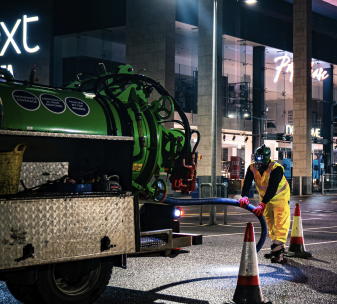
Talk to your local Metro Rod specialist
We are always happy to arrange a free site assessment and no obligation quotations for any work you might need. Alternatively, you can call our emergency hotline number on 0800 66 88 00
Get in touch Drainage Services